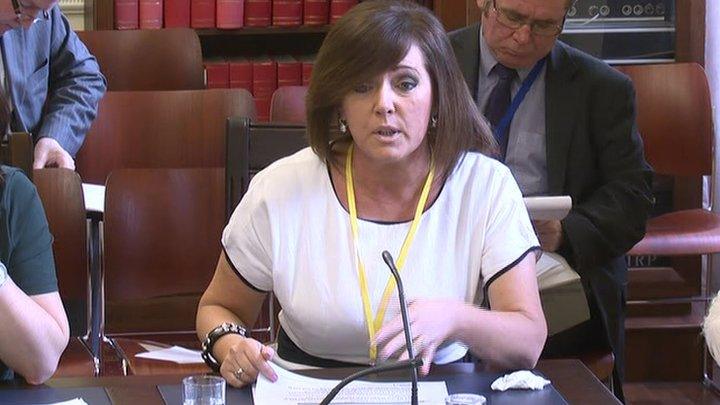Paramilitaries: Housing intimidation 'rife' in Northern Ireland
- Published
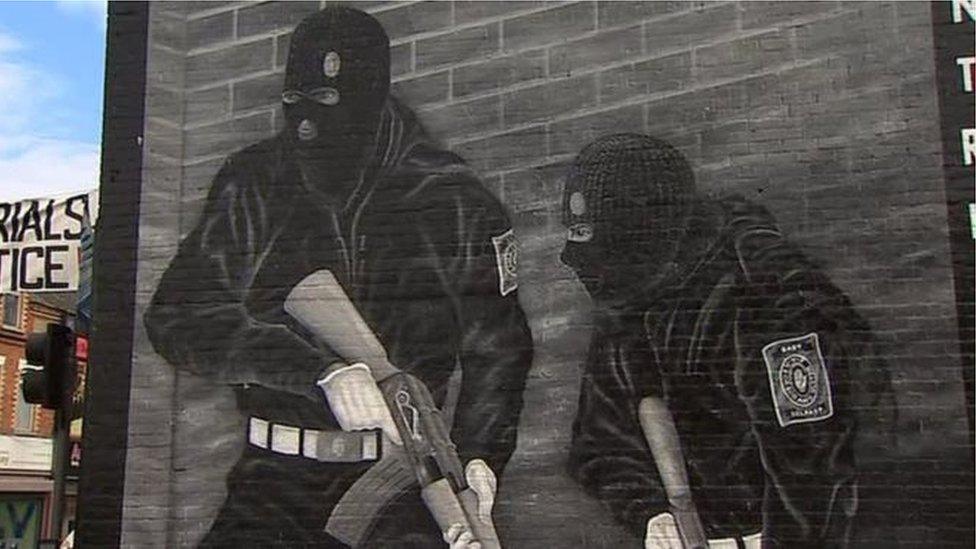
Loyalist paramilitaries are responsible for most cases of housing intimidation, MPs heard
Housing segregation driven by paramilitary intimidation is "rife" in Northern Ireland, a Westminster committee has heard.
MPs on the NI Affairs committee are carrying out an inquiry into paramilitary activity.
On Wednesday, they heard from human rights organisation, the Committee on the Administration of Justice (CAJ).
Its deputy director Daniel Holder said housing was still shaped extensively by paramilitary coercion.
Mr Holder told the committee that statistics showed there were hundreds of cases every year but warned: "Recorded cases are just the tip of the iceberg."
"People will know because of their background that it is not safe to move into a particular area, but information on patterns is not made available," he said.
Police policy of non-intervention?
There was a "clear omission" in strategies set up by the Stormont Executive to tackle the problem and that it would be harder to make progress now due to the lack of a functioning government, said Mr Holder.
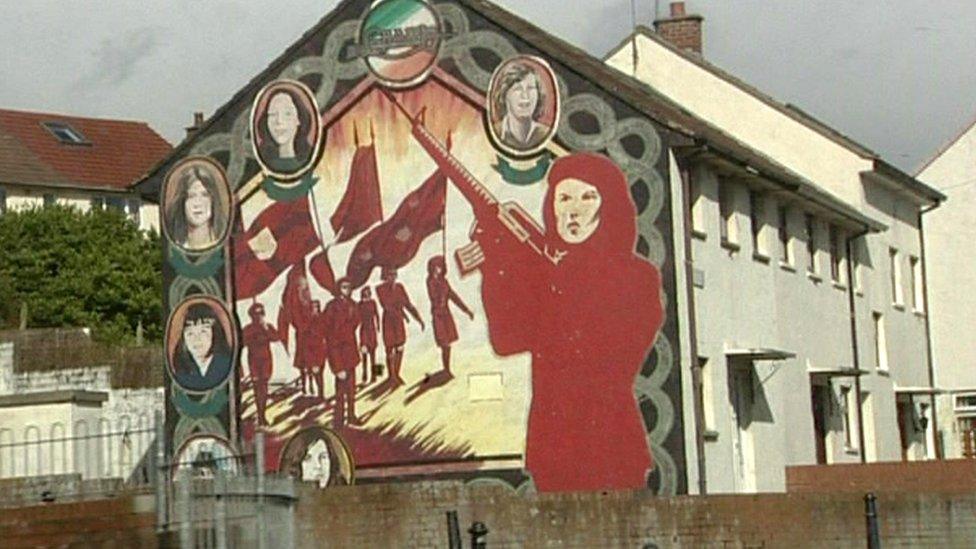
Mr Holder said punishment shootings and beatings should be recognised as acts of torture
He also suggested there was at times a "policy of non-intervention" by the Police Service of Northern Ireland (PSNI) in relation to the issue, when what could be considered intimidatory signs or acts took place in certain areas.
When North Dorset MP and committee chairman Simon Hoare asked if there was a "greater level of tolerance" in Northern Ireland, Mr Holder replied: "Imagine if somewhere in North Dorset, graffiti was routinely placed that advocated genocide against a particular section of your constituency.
"That would be speedily removed. One of the problems we face is precisely normalisation of that type of graffiti.
"There isn't a sufficient response despite the gravity of what that's projecting onto future generations, the state is allowing it to remain up."
'Acts of torture'
Mr Holder said loyalist paramilitaries were responsible for most cases involving housing intimidation.
His colleague Una Boyd, Immigration Project Coordinator at the CAJ, said there was also evidence that people from minority and ethnic backgrounds were being "severely impacted" by housing intimidation.
"There is cowardice on the part of public bodies and politicians not to call out the link between racist hate crimes and paramilitaries," she told MPs.
During his evidence, Mr Holder also said he believed paramilitary-style attacks should be classed under the legal definition of torture.
"In terms of the threshold, all punishment shootings and beatings meet that threshold and should be recognised as acts of torture," he said.
But asked by Mr Hoare how to change the perception within some communities of paramilitary groups being seen as "caped crusaders" defending their own areas, Mr Holder added that would require a process and "the will of groups themselves to go out of business".
Related topics
- Published6 November 2017
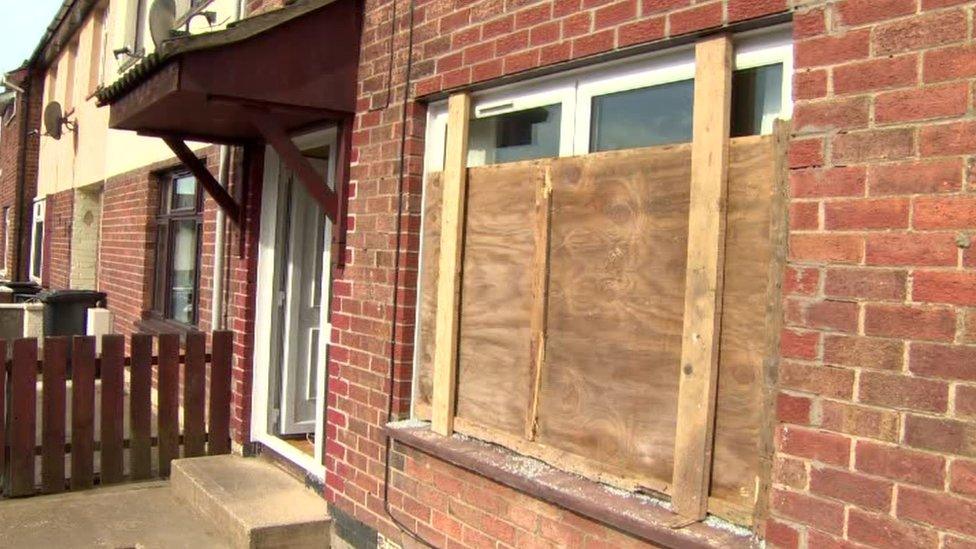
- Published5 October 2017
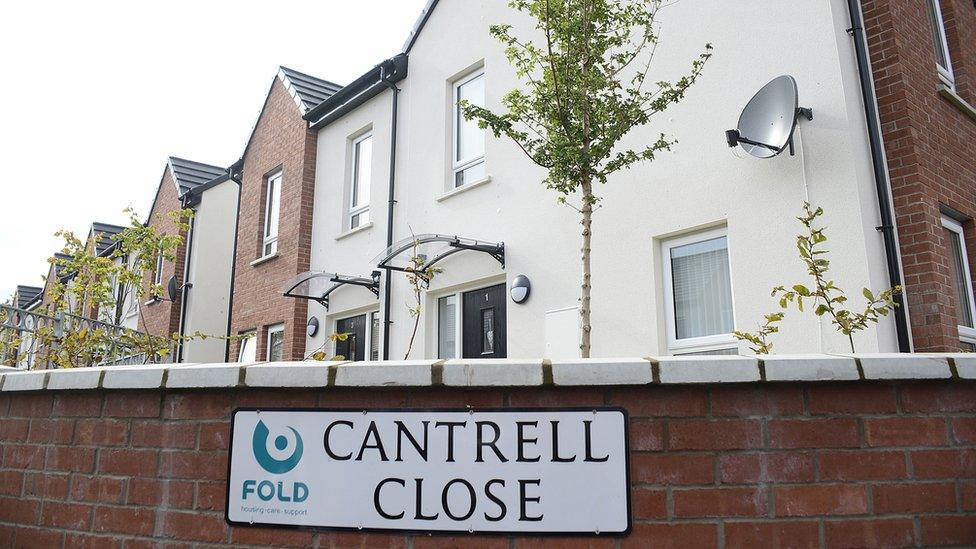
- Published16 May 2013
